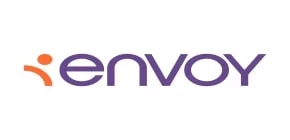On Dec. 23, 2022, the Department of Homeland Security's (DHS's) Public Charge Ground of Inadmissibility final rule took effect. The final rule reverts to the historical meaning of "public charge" that was in place before the Trump administration began to consider certain public health benefits, such as nutritional assistance and Medicaid, as part of the public charge inadmissibility determination.
Previously, DHS issued an Advance Notice of Proposed Rulemaking (ANPRM) to seek public input on how DHS should define the term "public charge." DHS concluded that under the final rule, it will consider an applicant's "age; health; family status; assets; resources, financial status, education and skills," along with an Affidavit of Support Under Section 213A of the INA, if one is required, and current or previous receipt of Supplemental Security Income (SSI), cash assistance under Temporary Assistance for Needy Families (TANF) for income maintenance; any Tribal, State, territorial or local cash benefit program ("General Assistance") for income maintenance, or long-term government-financed institutionalization.
To determine whether an individual is a public charge, DHS will not consider the receipt of noncash benefits, such as public housing, school lunch programs and the Supplemental Nutrition Assistance Program. An exception applies to long-term institutionalization at the government's expense.
Previously, DHS published a Policy Manual update instructing U.S. Citizenship and Immigration Services (USCIS) how to implement the regulation consistently and fairly, and how to inform the public on how the final rule will be implemented. USCIS started applying the new policy guidance on Dec. 23, 2022, to applications that were filed or submitted electronically on or after Dec. 23, 2022.
Along with the announcement above, DHS also noted that it published the Dec. 23, 2022 edition of Form I-485, Application to Register Permanent Residence or Adjust Status, for applicants to prepare their Form I-485 in advance of the final rule's implementation date.
DHS notes that it will reject the July 15, 2022 edition of Form I-485 if it is postmarked on or after Dec. 23, 2022. It will also reject the Dec. 23, 2022 edition of Form I-485 if it is postmarked on or before Dec. 22, 2022.
Additional information is available through the USCIS Public Charge Resources
Originally published 28 December, 2022
The content of this article is intended to provide a general guide to the subject matter. Specialist advice should be sought about your specific circumstances.

